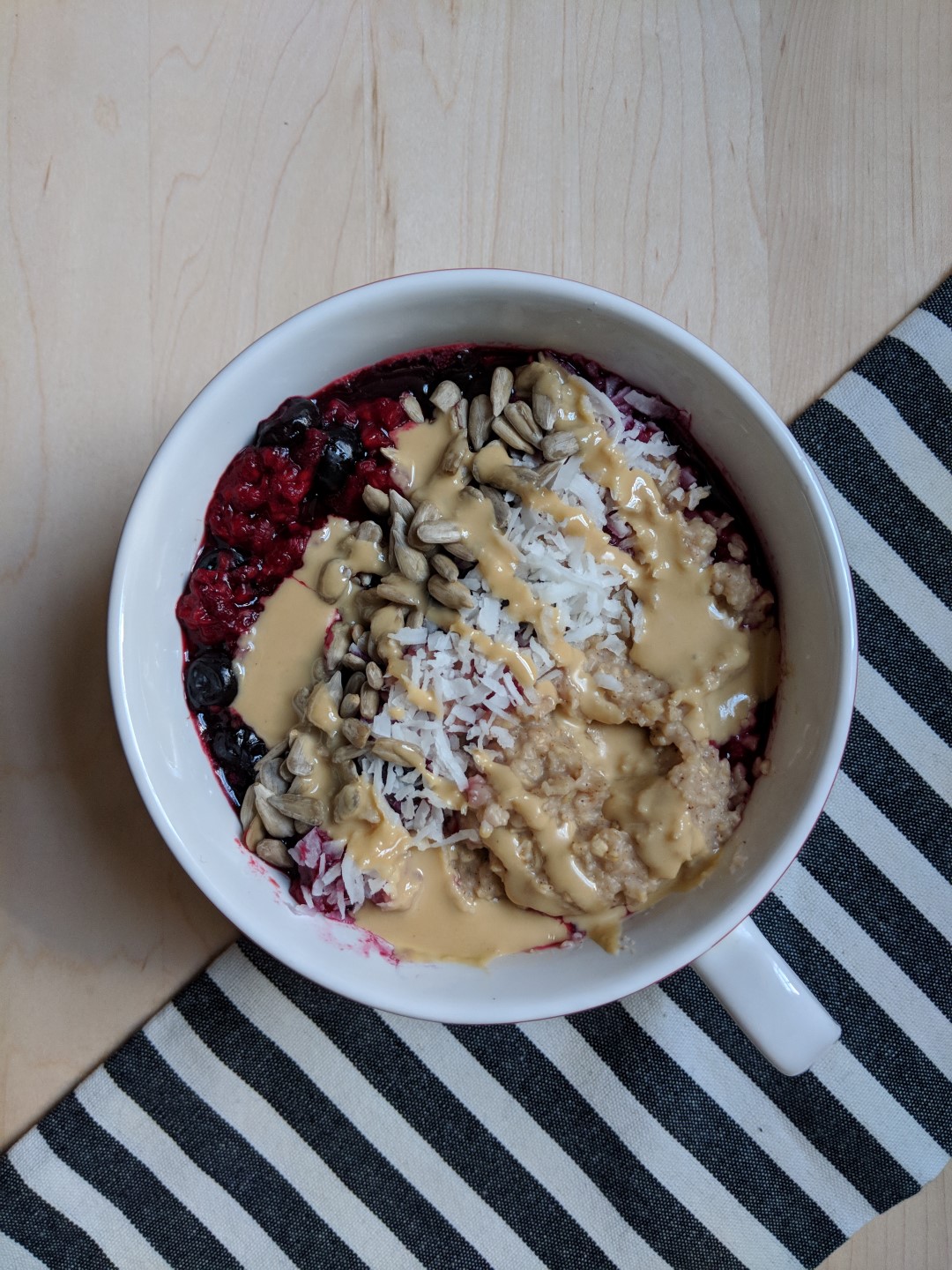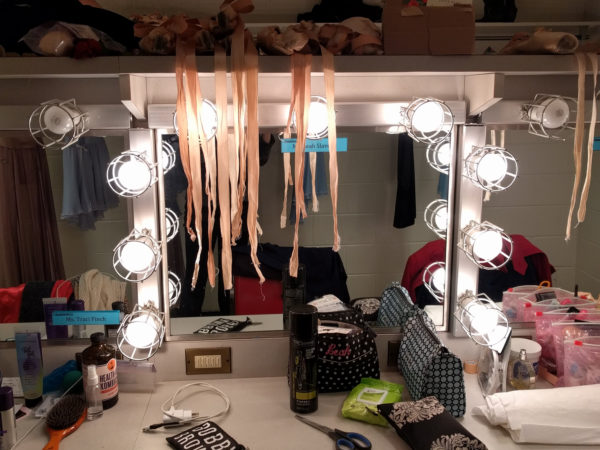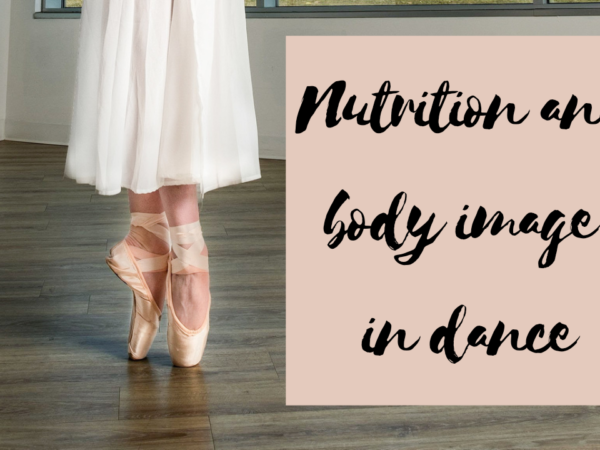My passion is to teach Intuitive Eating for dancers. For years, I thought I had to restrict food and diet my way to becoming a professional. This is my story of how Intuitive Eating changed my life and my dancer career.
Food tracking apps, fitness watches, diet books, and food scales have become a normal part of eating for many in efforts to gain a sense of nutritional health and well being. The well designed apps that show progress, sleek watches that affirm that you “did enough” today, and other tools used to perfect food consumption are all a part of an over $30 billion health and fitness industry in the United States alone that aims to capture our attention, and our wallets. But are these tools actually helping us to fuel our bodies with what they need?
Eating healthfully is often portrayed as restriction and control. It means going on a “diet” where the type of food, amount of food and even the time in which the food is eaten, is constricted. As we discussed in the previous blog post, this limiting eating behavior often leads to negative physical, mental, and emotional side effects that usually are not discussed. Yet, this is often portrayed as the necessary norm in order to reach success in terms of health, relationships, and even career.
my transition into intuitive eating
I was not immune to this when I began my career as a dancer. After years of training towards perfection and in a job that can seem so out of my own hands, finding any sense of control seemed like a good thing. And to be honest, I was really good at it. Unfortunately, I also found myself with several major injuries, crippling performance anxiety, body dysmorphia, and a really, really poor relationship with food.
The past four years have been a slow transition towards a lifestyle that is not only kinder on my body, but has also allowed my to grow as a dancer and as an artist in ways I never thought I could reach. I learned that true healthy eating comes from listening to my body and its needs and approaching food with a sense of abundance and not of deprivation or control. I did not realize that I was growing towards intuitive eating, a concept I only heard about for the first time a few years ago, and while it is gaining popularity, it’s something that I think should be more readily taught to dancers.
So what is intuitive eating?
The big picture goal of intuitive eating is to develop the mind and body connection around food, leading to better body awareness, self expression, and true nourishment. It involves approaching eating with curiosity, being mindful of the thoughts and cravings that you detect, and exploring those thoughts without judgement to make the best decision that is right for you.
This is a process of self-feedback that is unique to you, because these answers are going to vary from one person to another, so there is no right or wrong. This is a way of eating that suits your unique needs, a concept called bio-individuality. What works for someone else, might not work for you, and it’s a matter of exploration and trial and error. I want you to listen to your body, you know it better than anyone, and if your body is feeling sluggish or tired, or if, for example, you are frequently injured, your body is trying to tell you something.
Intuitive eating also means giving yourself full permission to eat all foods and eat when your body is sending you hunger cues. While this might feel like a loss of control, in time, this practice becomes easier. It allows you to approach food with neutrality, giving your body what it needs. This gives you a chance to explore what your body really wants – sweet, savory, dry, liquid, hot, cold, texture, and experience. Is your body wanting something fresh, or something comforting. Are you needing quick energy or a replenishment of a certain macronutrient after a long day or dancing? Are you wanting food, or something else like a hug, rest, love, or encouragement?
When I feel a craving towards food or a feeling, I take a second to see if the food I am about to eat is actually going to satisfy that craving or feeling. For example, when I am really tired or stressed, my body will crave sugar for energy, even if I’m not the least bit hungry. It’s totally okay to eat sugar in that moment, but I also have to acknowledge that the sugar isn’t going to fix the problem that only rest, sleep, and self care will solve. As you can tell, the psychology of eating is so much more complicated than what we commonly might think. This takes time and patience, knowing that progress probably won’t be straight forward. So it is extremely important to practice self love and gratitude.
How can intuitive eating help dancers?
When your body receives the food and nutrition it needs to fuel your body, it can execute movement with power, increase endurance, improve muscle tone, reduce fatigue, accelerate recovery, and prevent injury risk, all things that we see in a healthy dancer.
You might also notice shifts in your mindset and mood. Food restriction and perfectionism can often lead to more obsessive thought patterns and behaviors. This could be indicated by most of your thoughts being consumed by food or anxieties surrounding food that can take away from the ability to be present. It can also lead to guilt and shame surrounding food choices, and even uncomfortability and anxiousness in situations where there is access to food that you would not normally eat. It can bring up feelings of loneliness and tendencies towards isolation.
On the other hand, intuitive eating can allow you to be present in your dancing and in your everyday life. It can open up your mental capacity in classes and rehearsals to have more focus and build technique and artistry. It allows for more freedom, less stress surrounding food, and more me, brought a greater sense of gratitude for my body.
How do I start eating intuitively?
-
- Leave diet culture behind – get rid of food tracking, food restriction, fad diets, etc. Not only will it allow you the chance to truly listen to your body and its needs, but your mind and emotional state will thank you as well.
- Explore thoughts surrounding food and your body without judgement – See if you have any food rules: labeling foods as “good” or “bad”, or establishing restrictions surrounding what you eat, when you eat, and how you eat.
- Allow all foods – period. If there are foods that you don’t like, don’t work for you, or are foods that you are allergic to, obviously you can make the decision to not eat them. BUT, cutting out macronutrients or foods that you love because of a food rule is a sign that you should be able to eat it.
- Pay attention to your hunger and fullness cues and your cravings – Everyone’s hunger cues are different. Your stomach might rumble, or you might experience tiredness, loss of concentration, low energy levels, dizziness, stomach pangs, and even the dreaded hangry emotions. While eating, is your food satisfying what your body needs? Are you still hungry, comfortable, or overly stuffed?
- Asking questions – “How would I feel if I ate?” “What would sit comfortably in my stomach?” “What foods do I need to keep me energized?” “How will this food make my body feel after?”
- Turn off distractions while eating – having multiple devices on, schoolwork on the table, or even our favorite book in our hands can sometimes take us away from listening to our bodies and distracting us from tuning into our hunger and fullness levels.
- Honor your feelings without using food – Sometimes, we get used to using food as a coping mechanism for uncomfortable emotions. While it is totally okay to eat in those moments, we need to recognize that it is not food that will solve the issue. More on this in a later post!
- Allow guilt to move on – Your body is incredible. It naturally regulates itself and lets you know what it needs. It is also resilient, it has already carried you so far. Getting caught up in perfect food choices leads us away from how our bodies are actually functioning.
Intuitive eating seems simple, but it is not easy. It takes a lot of time, reflection, support, and care. It seems to go against everything we were told about food, but in actuality, I think it is how our bodies were meant to approach food. It’s never going to be perfect, it never will be, and it is never supposed to be. And that is a good thing, because its our own journey that we can enjoy. The reward of seeing yourself grow in strength on the inside and out is worth it. If you have any questions about Intuitive Eating for dancers or want to talk more, feel free to leave a comment or contact me here. I absolutely love talking with you guys and hearing about how intuitive eating has changed the way you approach food and your body!






Awesome post! Keep up the great work! 🙂
Some really good information, Sword lily I detected this. “Nothing is so bitter that a calm mind cannot find comfort in it.” by Lucius Annaeus Seneca.
[…] it to our own body and circumstances. You can find out more about intuitive eating and hunger cues here and […]
[…] own food choices and develop compassion and love for your body. I cannot wait to share more about intuitive eating and a mindful approach to food on the next post! […]
[…] by paying attention to your hunger and fullness and satiety levels before, during, and after meals. Intuitive eating also means listening to your cravings for what your body really wants to eat and enjoying that food […]